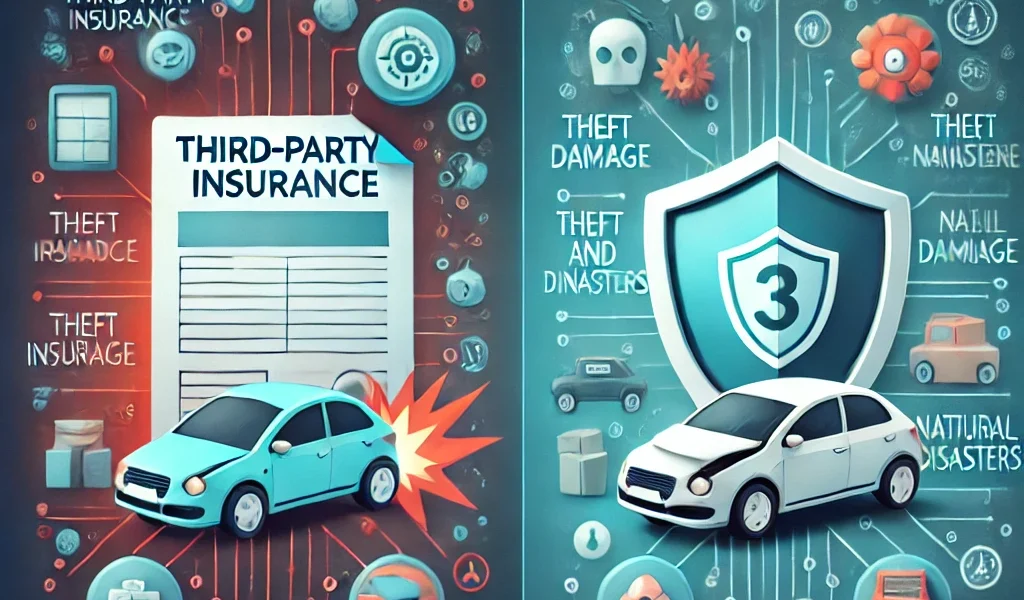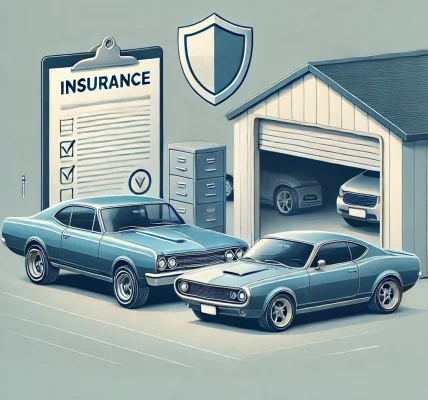Car insurance is a critical financial protection for vehicle owners, but choosing the right type of coverage can be overwhelming. The two most common types of car insurance are third-party insurance and comprehensive insurance. Understanding the differences, benefits, and drawbacks of each can help you make an informed decision based on your needs and budget.
In this article, we’ll compare third-party vs. comprehensive car insurance, analyze their pros and cons, and help you decide which one is best suited for you.
What is Third-Party Car Insurance?Third-party car insurance is the most basic and legally required form of car insurance in many countries. It covers damages caused to other people, vehicles, or property due to an accident where you are at fault. However, it does not cover any damage to your own car.
Coverage Under Third-Party Insurance:✅ Injury to Others: Covers medical expenses for third-party injuries.
✅ Property Damage: Pays for damage to third-party property or vehicles.
✅ Legal Liability: Covers legal expenses if a third party sues you for damages.
What is Not Covered?❌ Own Vehicle Damage: Any repairs or replacements for your car are not covered.
❌ Personal Injuries: Medical expenses for you or your passengers are not included.
❌ Theft or Natural Disasters: Theft, floods, fire, and vandalism are not covered.
Who Should Choose Third-Party Insurance?Third-party insurance is a good option if:
✔️ You own an old or low-value car where repairs may cost more than the vehicle’s worth.
✔️ You are on a tight budget and need the most affordable legal coverage.
✔️ You don’t drive frequently or only use your car for short distances.
What is Comprehensive Car Insurance?Comprehensive car insurance provides broader coverage, including third-party liabilities as well as protection for your own vehicle. It safeguards you against accidents, theft, natural disasters, and other unforeseen events.
Coverage Under Comprehensive Insurance:✅ Third-Party Liability: Covers injury and property damage to others.
✅ Own Vehicle Damage: Pays for repairs to your car in case of an accident.
✅ Theft Protection: Covers loss due to car theft.
✅ Natural Disasters & Fire: Protects against damages from floods, storms, earthquakes, and fires.
✅ Personal Accident Cover: Covers medical expenses for you and your passengers.
What is Not Covered?❌ Wear and Tear: Regular maintenance and depreciation are not included.
❌ Driving Under Influence: Damages caused while driving under alcohol or drugs are not covered.
❌ Illegal Use of Vehicle: Any loss incurred while engaging in illegal activities is not covered.
Who Should Choose Comprehensive Insurance?Comprehensive insurance is ideal if:
✔️ You own a new or expensive car and want full protection.
✔️ You live in an area prone to theft, vandalism, or natural disasters.
✔️ You frequently drive and want peace of mind from all possible risks.
Key Differences: Third-Party vs. Comprehensive InsuranceFeatureThird-Party InsuranceComprehensive InsuranceCovers Third-Party Damages✅ Yes✅ YesCovers Own Car Damages❌ No✅ YesCovers Theft & Natural Disasters❌ No✅ YesCovers Personal Injuries❌ No✅ YesLegal Requirement✅ Yes❌ No (But Highly Recommended)Premium Cost💰 Low💰💰💰 HigherPros and Cons of Third-Party vs. Comprehensive Insurance✅ Third-Party Insurance: Pros✔️ Affordable: Lower premiums make it budget-friendly.
✔️ Meets Legal Requirements: Provides mandatory coverage to drive legally.
✔️ Simple and Easy to Purchase: Minimal paperwork and quick approval.
❌ Third-Party Insurance: Cons❌ Limited Coverage: No protection for your car.
❌ Higher Out-of-Pocket Costs: You bear repair costs for your own damages.
❌ No Protection Against Theft or Natural Disasters.
✅ Comprehensive Insurance: Pros✔️ Full Coverage: Protects both your vehicle and third parties.
✔️ Financial Security: Covers expensive repairs and replacements.
✔️ Covers a Wide Range of Risks: Theft, fire, natural disasters, etc.
❌ Comprehensive Insurance: Cons❌ Higher Premiums: More expensive than third-party insurance.
❌ May Not Be Worth It for Old Cars: Repair costs may exceed car value.
Which One Should You Choose?The choice between third-party and comprehensive insurance depends on several factors, including budget, car value, driving habits, and risk tolerance. Here are some recommendations:
🔹 Choose Third-Party Insurance If:
You have an old or inexpensive car.
You want the cheapest legal coverage.
You drive occasionally and in safe areas.
🔹 Choose Comprehensive Insurance If:
You own a new or high-value car.
You live in an area prone to theft or accidents.
You want complete peace of mind with full protection.
Final Verdict: Making the Right DecisionIf you’re looking for basic, affordable insurance that meets legal requirements, third-party insurance is the way to go. However, if you want complete financial protection against all possible risks, comprehensive insurance is a better long-term investment.
💡 Pro Tip: If budget is a concern but you still want more protection, look for customized add-ons such as theft protection, personal accident cover, or roadside assistance to enhance your policy.
Before making a decision, always compare multiple insurance providers to find the best coverage at a competitive price. Safe driving and selecting the right insurance can save you money and provide peace of mind. 🚗🔍✅
Policy WorldSearch
Your Guide to Insurance & Legal Solutions




